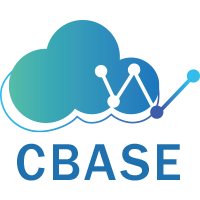
Past Speakers(2022)
Keynote Speakers of CBASE 2022
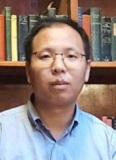
Prof. Xiangjie Kong
Zhejiang University of Technology, China
Biography:
Dr. Xiangjie Kong is currently a Full Professor in the College of Computer Science & Technology, Zhejiang University of Technology (ZJUT), China. Previously, he was an Associate Professor in School of Software, Dalian University of Technology (DUT), China, where he was the Head of the Department of Cyber Engineering. He is the Founding Director of City Science of Social Computing Lab (The CSSC Lab) (http://www.cssclab.cn). He is/was on the Editorial Boards of 6 International journals. He has served as the General Co-Chair, Workshop Chair, Publicity Chair or Program Committee Member of over 30 conferences. Dr. Kong has authored/co-authored over 140 scientific papers in international journals and conferences including IEEE TKDE, ACM TKDD, IEEE TNSE, IEEE TII, IEEE TITS, IEEE NETW, IEEE COMMUN MAG, IEEE TVT, IEEE IOJ, IEEE TSMC, IEEE TETC, IEEE TASE, IEEE TCSS, WWWJ, etc.. 5 of his papers is selected as ESI- Hot Paper (Top 1‰), and 16 papers are ESI-Highly Cited Papers (Top 1%). His research has been reported by Nature Index and other medias. He has been invited as Reviewers for numerous prestigious journals including IEEE TKDE, IEEE TMC, IEEE TNNLS, IEEE TNSE, IEEE TII, IEEE IOTJ, IEEE COMMUN MAG, IEEE NETW, IEEE TITS, TCJ, JASIST, etc.. Dr. Kong has authored/co-authored three books (in Chinese). He has contributed to the development of 14 copyrighted software systems and 20 filed patents. He has an h-index of 36 and i10-index of 87, and a total of more than 4200 citations to his work according to Google Scholar. He is named in the2019 and 2020 world’s top 2% of Scientists List published by Stanford University. Dr. Kong received IEEE Vehicular Technology Society 2020 Best Land Transportation Paper Award, and The Natural Science Fund of Zhejiang Province for Distinguished Young Scholars. He has been invited as Keynote Speaker at 2 international conferences, and delivered a number of Invited Talks at international conferences and many universities worldwide. His research interests include big data, network science, and computational social science. He is a Distinguished Member of CCF, a Senior Member of IEEE, a Full Member of Sigma Xi, and a Member of ACM.
Speech title: Urban Travel Profiling based on Spatial-Temporal Big Data
Abstract: A modern city is a ternary space that includes physical world, human society, and information space. Urban spatio-temporal data are the foundation of urban travel intelligence. Based on urban spatio-temporal data, the accurate description of travel information in cities is the premise of forecasting/warning and decision-making assistance. This talk discusses key technologies for analyzing and mining of heterogeneous spatio-temporal networks. It not only focuses on the theme of urban travel profiling based on multi-source urban data, but also takes graph learning as the basic technical framework to scrutinize related technology and methods for analyzing heterogeneous spatio-temporal networks. This talk highlights research challenges in computing and analyzing mobile crowdsourced data generated by a large amount of participants/devices, and fusing multi-source and heterogeneous spatial-temporal data to facilitate applications towards urban travel profiling.
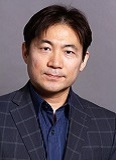
Prof. Kenji Suzuki
Tokyo Institute of Technology, Japan
Biography:
Kenji Suzuki, Ph.D, has been actively researching deep learning in medical imaging and AI-aided diagnosis for over 25 years. Prior faculty experiences include University of Chicago and Illinois Institute of Technology. He has published 14 books and over 340 papers and is an inventor on a dozen of licensed and commercialized patents, including one of the earliest deep learning patents. He has been awarded numerous grants, including grants from NIH, NEDO, and JST, chaired 98 international conferences, and served as editor of over 40 leading international journals. Dr. Suzuki has been Professor in Institute of Innovative Research at Tokyo Institute of Technology.
Speech title:AI Doctor and Smart Medical Imaging with Deep Learning
Abstract:It is said that artificial intelligence (AI) driven by deep learning would make the 4th Industrial Revolution. Deep leaning becomes one of the most active areas of research in computer vision, pattern recognition, robotics, and imaging fields, because “learning from examples or data” is crucial to handling a large amount of data (“big data”) coming from vision and imaging systems. Deep learning is a versatile, powerful framework that can acquire image-processing and recognition functions through training with image examples; and it is an end-to-end machine-learning model that enables a direct mapping from raw input data to desired outputs, eliminating the need for handcrafted features in conventional feature-based machine learning. I invented ones of the earliest deep-learning models for image processing, semantic segmentation, object enhancement, and classification of patterns in medical imaging. I have been actively studying on deep learning in medical imaging in the past 25 years. In this talk, AI-aided diagnosis and smart medical imaging with deep learning are introduced, including 1) computer-aided diagnosis for lung cancer and colon cancer in CT, and 2) AI imaging for a) separation of bones from soft tissue in chest radiographs and b) radiation dose reduction in CT and mammography.
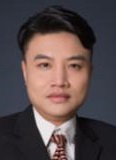
Prof. Han Huang
Biography:
Han Huang is a professor and doctoral supervisor of the School of Software Engineering at South China University of Technology. He holds a PhD in computer science from South China University of Technology. Prof. Huang is currently serving as an associate editor of IEEE Transaction on Evolutionary Computation (IF: 16.497) and Complex & Intelligent Systems (IF: 6.700), associate director of Intelligent Simulation Optimization and Scheduling Special Committee, deputy secretary-general of Data Science and Artificial Intelligence Special Committee of China Society for Industrial and Applied Mathematics, associate director of the Key Laboratory of Big Data and Intelligent Robots of the Ministry of Education, director of Teaching Steering Committee for Software Engineering of Undergraduate Colleges and Universities in Guangdong Province, associate director of Finance and Artificial Intelligence Special Committee of Guangdong Mathematical Society, vice chairman of Logistics Branch of Operations Research Society of Guangdong Province, secretary-general of Software Engineering Special Committee of Computer Academy of Guangdong, expert consultant of Guangdong Insurance Industry, associate director of the 11th Block Chain Specialized Committee of Computer Academy of Guangdong, associate director of Guangzhou Society for Industrial and Applied Mathematics, and director of Technical Committee of Big Data and Computational Advertising Engineering Technology Research Center of Guangdong Province. He is also a CCF Distinguished Member and IEEE Senior Member. Prof. Huang has hosted more than ten national and provincial projects and published more than 60 papers in IEEE TCYB, IEEE TETC, IEEE TSE, IEEE TEVC, IEEE TIP, IEEE TFS, and Science China, including ESI highly cited papers. He has 36 invention patents granted in China and five invention patents granted in the United States. He won first prize in the Guangdong Scientific and Technological Progress Awards, second prize in the Guangdong Natural Science Awards, Excellent Paper Award of China Simulation Federation, and second prize of Science and Technology Progress of China Society of Image and Graphics. He has been committed to the research on the theories, applications and industrial ecology of intelligent algorithms.
Speech title: Automated Test Case Generation for Software Based on Micro-scale Searching
Abstract: The speech will present some research advances in automated software test case generation which is considered a black-box optimization problem. Furthermore, a micro-scale searching algorithm is used to solve the problem. The algorithmic idea and designing technique are introduced for several software instances of automated software testing. The instances include the software toolkits of basic programming, fog computing, natural langue processing, block chain, etc. Besides the solution results, some real-world applications will be also presented at the end of the talk.
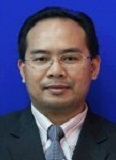
Prof. Ali Selamat
Biography: Prof. Ali Selamat is an academician at Malaysia Japan International Institute of Technology (MJIIT), Universiti Teknologi Malaysia (UTM), Kuala Lumpur, Malaysia. An academic institution established under the cooperation of JICA (Japanese International Cooperation Agency) and Ministry of Higher Education Malaysia (MOHE) to provide Japanese-oriented engineering education in Malaysia (http://mjiit.utm.my/). Currently he is serving as the Dean for the institute. He is also current a chair of IEEE Computer Society, Malaysia Section.
Speech title: RECENT RESEARCH ON DETECTION OF VULNERABLE PLAQUE IN CORONARY ARTERY ULTRASOUND IMAGES USING MACHINE LEARNING ALGORITHMS
Abstract: Atherosclerotic plaque rupture is the most common mechanism responsible for the majority of sudden coronary deaths. The precursor lesion of plaque rupture is thought to be a thin cap fibroatheroma (TCFA) or “vulnerable plaque”. Virtual Histology Intravascular Ultrasound (VH-IVUS) image is clinically available for visualizing this colour coded coronary artery tissue. However, it has limitations in providing clinical relevant information for identifying the vulnerable plaque. In this talk, we discuss on the recent research on the detections of vulnerable plaque in virtual histology intravascular ultrasound images using machine learning algorithms. We proposed how to improve the identification of TCFA in VH-IVUS image by developing a set of algorithms for segmentation, feature extraction, and plaque type classification to accurately identify vulnerable plaque. To develop the algorithms two approaches comprising of optimization and semi-supervised models were adopted. Besides, K-means and Fuzzy c-means (FCM) were improved by Particle Swarm Optimization (KMPSO and FCMPSO). Next, semi-supervised models were developed by means of hybrid FCM with k-Nearest Neighbor (FCM-kNN), minimum Euclidean distance (FCM-mED), and Support Vector Machine (FCM-SVM). For the extraction, two algorithms were adopted: Close Lumen Tracing (CLBT) and Open Lumen Tracing (OLBT) to extract luminal features. In addition, three algorithms were explored for extracting significant features from plaque component consisting of Extracting Confluent Component (ECC), Necrotic Core Layering (NCL), and Plaque Burden Assessment (PBA). For plaque type classification, the extracted features from VH-IVUS were integrated with textural features to enhance the efficiency.